|
The Month in Photos!
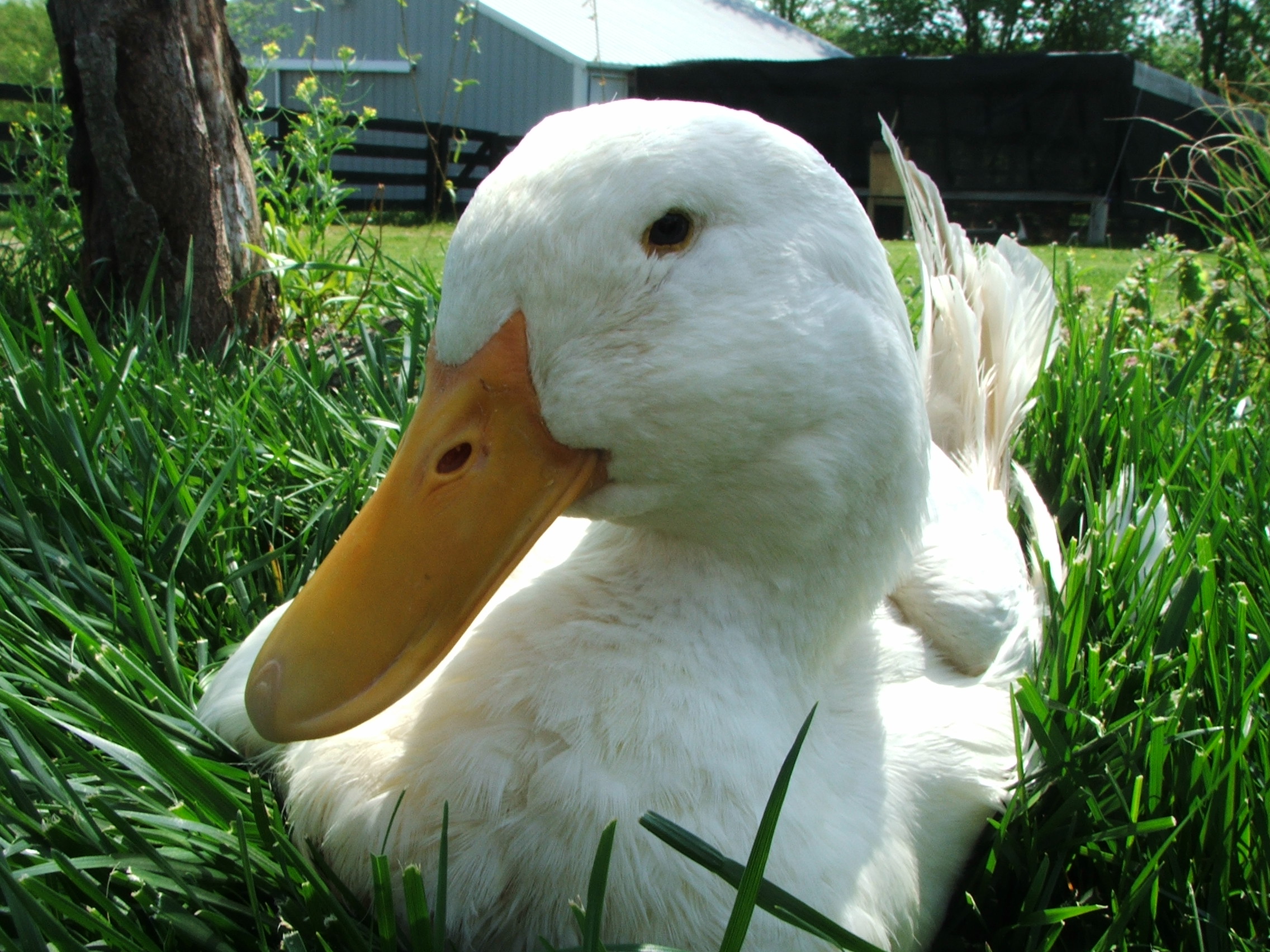
Joseph and his amazing dreamcoat!
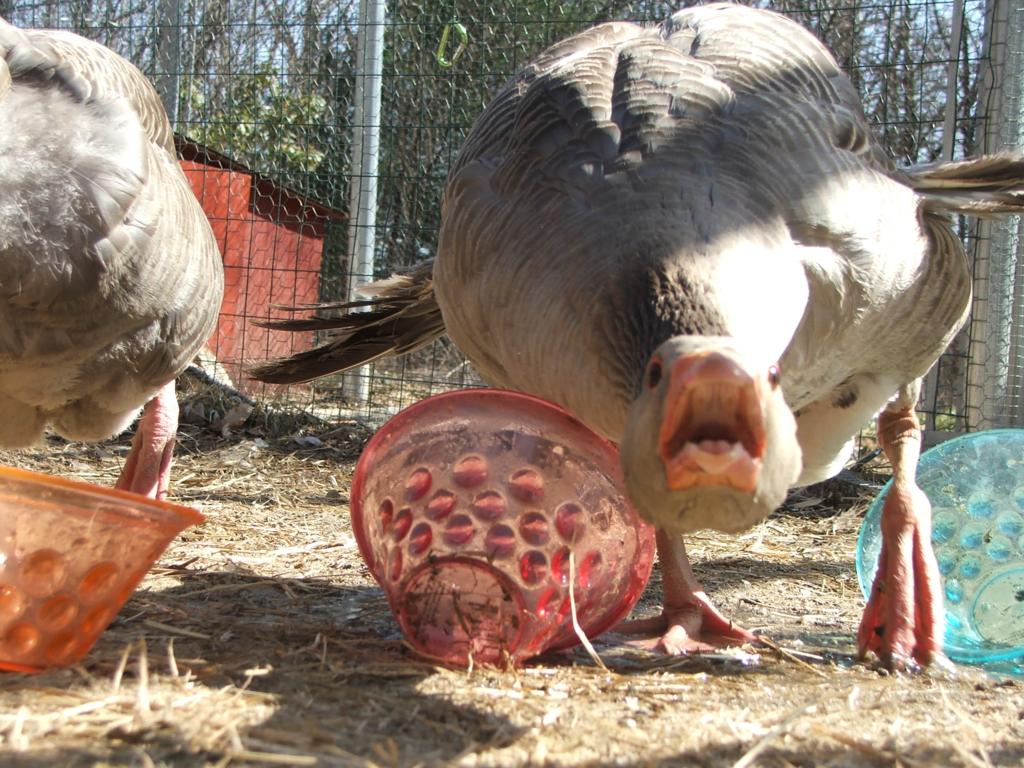
He's
comin' right for us!
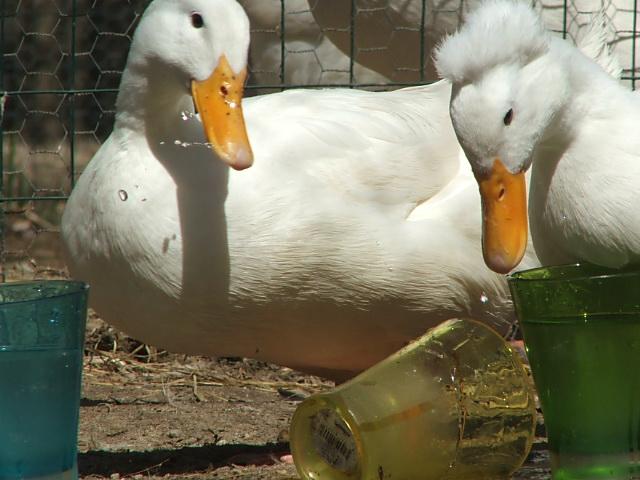
You're cut off...
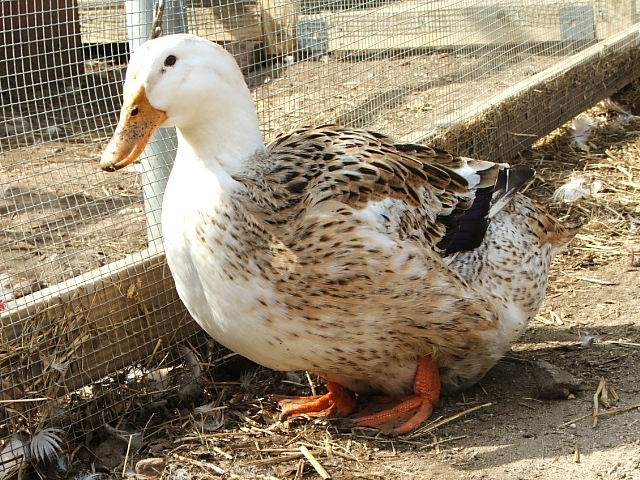
She's a beauty!
Majestic Newcomers
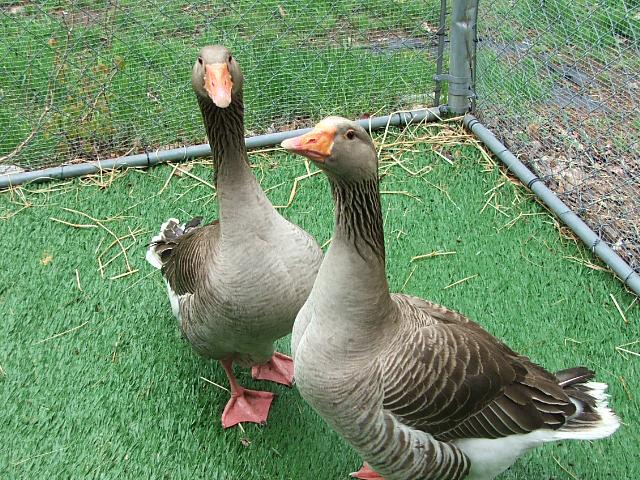
Duran Duran (for
now...)
If you are a loving
family and have a predator proof pen, please consider adopting! Click here to fill out our
online adoption
application.
If you canít adopt, please consider sponsoring
by visiting our
sponsor page.
Recommended
Mother's Day
Gift*

Mom, I'm a Lucky Duck
Product
Description
This is a beautiful book dedicated to
Mom's everywhere and it features DUCKS!
Celebrating Mom's roles as nurturer, teacher
and cheerleader, Elsdale's photographic spreads of feathery
fledgling ducklings are perfectly paired with Regan's heartfelt
verse.
You are truly going to
love this book!
Click
here
to order.
|
* |
For
our full recommended reading list, click
here. If you order from
Amazon by way of our website, Majestic receives a
portion of the proceeds! |
Contact Us
Majestic Waterfowl
Sanctuary
17 Barker Road
Lebanon, CT 06249
directorATmajesticwaterfowl.org
Our Newsletter
The Majestic Monthly is published 12 times per year.
Previous issues are available in our
Archives.
|
Six Duckling
Minimums & Waterfowl Abandonment
Many states have a SIX duckling
purchasing minimum. Unprepared families have no idea the
trouble that this will cause them NEXT spring when their
ducks are mature. They see the ducklings and buy on
impulse thinking: "how cute!" Furthermore, stores
sell these ducklings "straight run," which means
"unconfirmed gender." The odds of actually ending up
with the proper ratio of 1 drake to 3-4 hens is nearly
impossible. Since mature drakes will fight with one
another, the seeds of the abandonment cycle have just
been planted.
The unknowing family often will not
discover their new problem until the following Spring
when their drakes face their first mating season. Mature
drakes will fight and can inflict serious injury on one
another and on hens. Too many drakes and not enough hens
also leads to the over-mating of hens, which can lead to
serious (and fatal) reproductive injuries. Multiple
drakes can also easily drown a hen during mating
rituals.
Families faced with fighting drakes,
will often abandon their "excess" drakes on ponds
(usually discarding their alpha drake, who is the most
aggressive), which is why there are always more boys in
need of rescuing than females. Other families who become
overwhelmed by their "minimum six" purchase will abandon
any "extras" on ponds as well.
A family wanted ducklings, but only
having one pen for their adult ducks, should only start
with two ducklings. A pair of ducks will get along no
matter what gender they are:
-
If both ducklings turn out to
be drakes, a bachelor pad is usually pretty peaceful
without a hen around to fight over. If you want to
add hens, you will need to build a second pen, so
each boy has their own area.
If you want ducklings, it is smart
to start with ONLY TWO, especially if they
are straight run. Then, if you want to, you can add
adult ducks of known gender to your flock and round it
out just the way you envision it.
Keep in mind that each pair of
ducks will need a pen that measures approximately 250
square feet. Anything less than this often results in
hard packed ground that won't grow grass, which is very
bad for webbed feet and leads to foot pad infections and
bumblefoot. As it is with a 250 square foot pen, you
will probably need to turn over the ground every spring
and reseed grass.
Waterfowl Imprinting
We often use the word
"imprinted" when we discuss the connection between humans
and ducks, but what exactly is imprinting?
There
are two types of imprinting that occur among ducklings and
goslings: filial imprinting and sexual imprinting.
Filial Imprinting is when ducklings and goslings hatch
and subsequently learn to recognize their parent--or the
first moving object that they consider to be their parent.
This commonly occurs within a day and a half of hatching.
It
makes sense that ducklings and goslings, who leave the nest
soon after hatching, have the instincts to socially bond and
stick close to a parent (even if that parent is you!) for
protection. These hatchlings are more likely to survive and
reproduce in the long run--an evolutionary benefit.
Occasionally we are asked if hatchlings who were
acquired at a few days old will still imprint on their new
human parents. The answer is yes. Imprinting is not
so steadfast as to have exact time lines or
conditions--especially if there is no other parent around.
Our
rescue endeavor frequently exposes us to formerly human
imprinted birds who were subsequently abandoned. These ducks
and geese have completely let go of their social bond with
humans. In some cases, we can re-establish this filial bond.
It can take anywhere from a few months to a year, but
rediscovering this bond is possible.
Sexual Imprinting
is when a duckling or gosling internalizes those traits that
will one day be attractive in a mate. As adults, ducks and
geese are attracted to mates who share the appearance of
their parent.
If
your duckling or gosling experienced filial imprinting on
you because you were their caretaker upon hatching, they
will also learn that your human physical traits are
attractive. When they mature, they will begin to see you in
a whole new light and may court you instead of other ducks
or geese.
Sexual imprinting is not necessarily permanent--especially
if there are other ducks and geese around. Although
hatchlings may sexually imprint on you in the beginning,
this tends to change once they mature and encounter other
adult waterfowl. Commonly, by their first Spring, most will
figure out the birds & the bees and will
appropriately redirect their impulses, although they will
still hold a special place in their hearts for you.
Our
drakes Young Jeffrey & Young Matthew imprinted on humans,
but once we began our rescue work and brought in hens, the
boys realigned their beliefs pretty quickly. Although today
they will toss a few courting displays my way, we are far
second to the hens.
Sexual imprinting can also induce egg-laying in hens. If you
have a hen who has imprinted on you, your presence can
entice courting behavior and egg-laying.
Thank You: Gift Card Drive
Thank you Chris and Jennifer for thinking
of the ducks and geese in our sanctuary. We hope many more of
you will pitch in over the months to come and send more Home
Depot, Lowes, Walmart, Target and Stop & Shop gift cards to help
us purchase supplies for our ducks and geese.
Special
Thanks
Thank you to the Huffmans in Kentucky for
extending a warm welcome--what a fantastic visit!
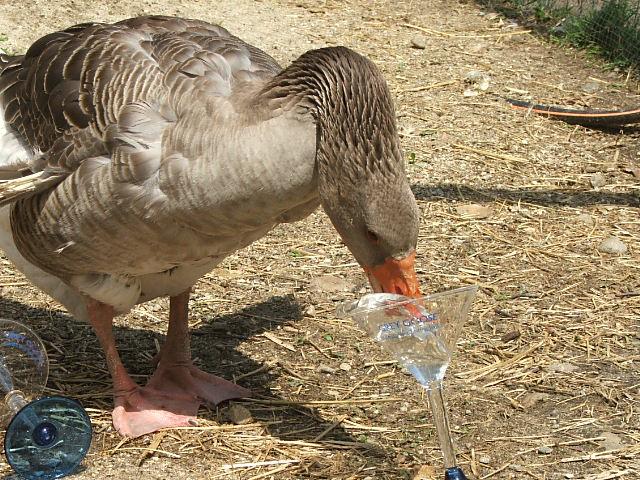
Angelo sipping from his "Grey Goose" souvenir glass
|

